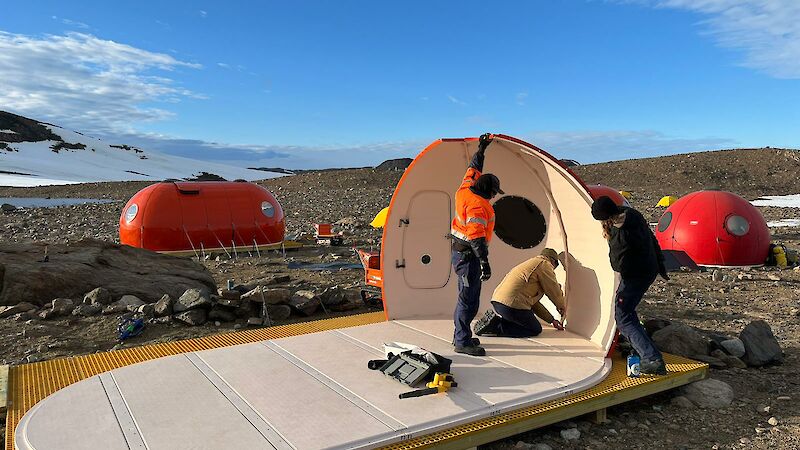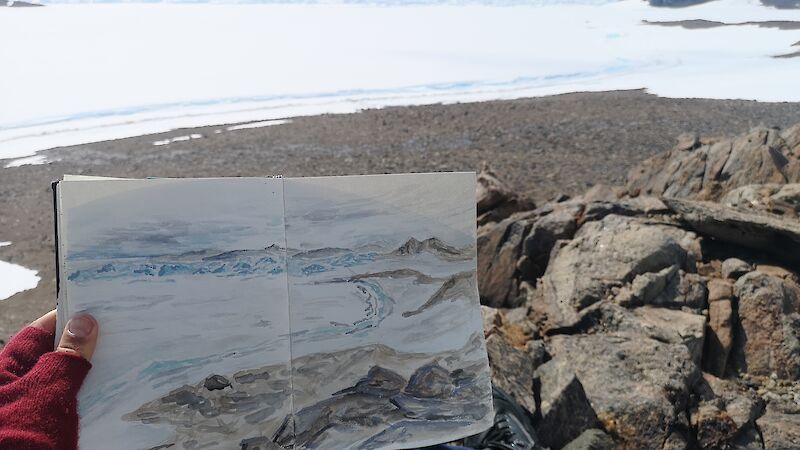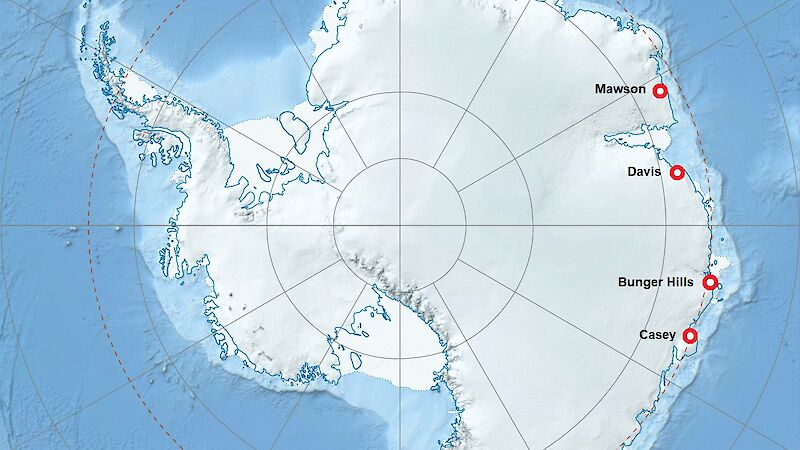A new deep-field camp has been established in the Bunger Hills, near the Denman Glacier in East Antarctica, for scientists to begin studying climate change impacts in the region.
The camp was constructed over 55 days by a small team of Australian trade and field personnel, who were flown to the site 450 kilometres west of Casey research station, in December.
The camp will house up to 40 scientists and support personnel working on and around the glacier next season.
Building melons
Field Leader David Knoff said the five-person team worked hard in challenging conditions to build timber platforms, assemble new huts and restore old ones at the co-located seasonal Edgeworth David Base.
"All up we prepared four new 'melon' huts, ten tent platforms and a foundation platform for the main kitchen tent," Mr Knoff said.
"We had a great team working in really challenging conditions, but we still managed to celebrate Christmas, News Year's Eve and three birthdays.
"But the best celebration we had was the day we finished. We came here to do a job, we did it, and we've set the scientific team up for success next season."

Threats to the Denman Glacier
Australian Antarctic Division (AAD) Chief Scientist, Professor Nicole Webster, said the scientific effort, known as the Denman Terrestrial Campaign, would bring together a suite of researchers over three years.
"We already know the Denman Glacier is vulnerable to climate change and holds a potential sea level rise of 1.5 metres," Professor Webster said.
"Field work and research will address the risk of ice mass loss on time-scales from the next few decades to centuries."
"We are working with research partners to take a truly united approach towards understanding these impacts."

A national effort
Partners include scientists from the AAD, Australian Research Council Special Research Initiatives - the Australian Centre for Excellence in Antarctic Science (ACEAS) and Securing Antarctica's Environmental Future (SAEF) - and the Australian Antarctic Program Partnership (AAPP).
ACEAS Director Professor Matt King said a suite of scientific activities would be underway once teams arrived.
"The camp is going to be a busy place for six weeks, with everything from ice core drilling to wildlife, and microbial surveys," Professor King said.
"The pandemic delayed a lot of Australia's science on the continent and this campaign, using our combined expertise, is a real return to form."
The research from the terrestrial (land) campaign will be linked with those of a subsequent marine science voyage in 2025.







